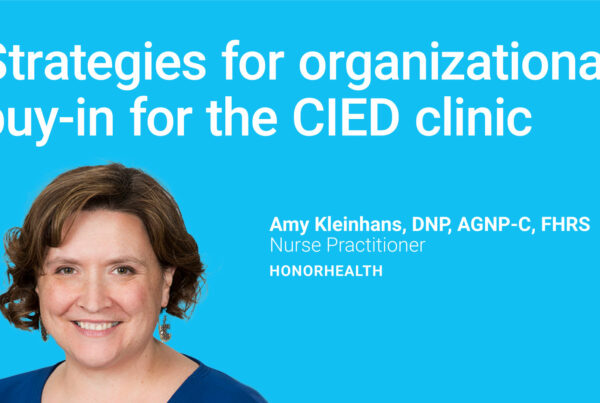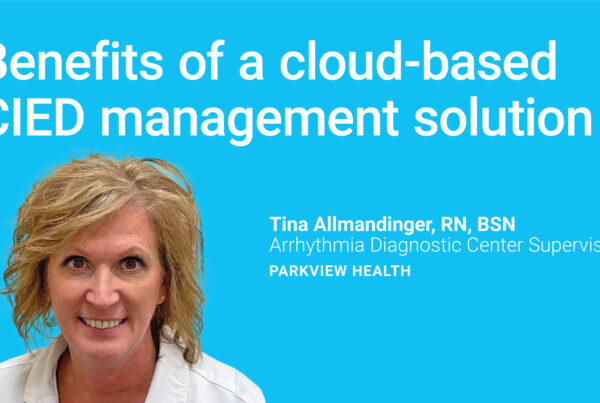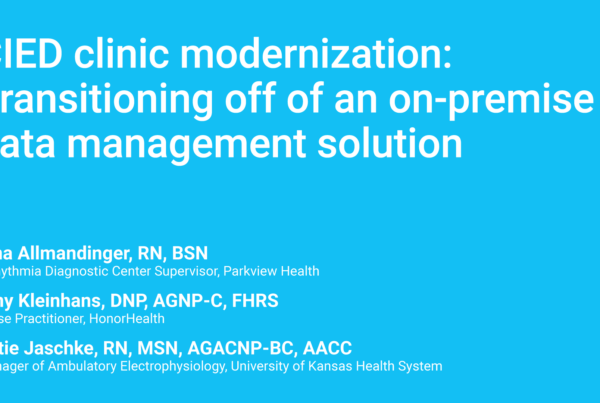Sallie Gustafson, RN, BSN, CCDS shares invaluable insights on developing effective standard processes for clinics and maintaining consistent adherence to those standards.
At the time of recording, Gustafson was Senior Device Clinic Manager at Emory Healthcare. She is currently the Director of Medical Affairs at Murj.
Key takeaways
- Standards and defined processes promote efficiency and productivity, and help clinics meet regulatory and institutional standards.
- Well-documented processes provide clear expectations, consistency, and improved patient safety, and boost employee engagement and satisfaction.
- Identifying the need for improvement starts by gathering information from frontline staff about what’s not working. By asking, “Why?”, clinics can drill down to the core of the problem and find practical solutions.
- Evidence from literature helps clinics address issues and implement best practices. Disseminating information and periodically checking compliance is crucial for maintaining these best practices.
In their own words
At Emory, we looked at how to develop our standard processes. You need to identify the need first. Is there something already in place that’s not working? And you get your information from your frontline staff about that. We have a huddle every morning. It’s our readiness huddle. We talk about what went well yesterday, what did not go well, and if it didn’t go well, let’s think about why.
Regular review helps maintain the process, so we know how hard it is to push a rock up a hill. This regular review helps us keep the rock wedged halfway up the hill and not roll backward…
It promotes patient safety. And it also helps promote employee engagement and satisfaction because they’re involved in the process. They’re involved in the review, they know what they’re supposed to do, and they feel good when they see that compliance number go up.
This session was recorded during Heart Rhythm 2023 as part of an exclusive Murj-sponsored educational series featuring leading voices in CIED care. Get a full recap of Murj’s activities at HRS 2023.





